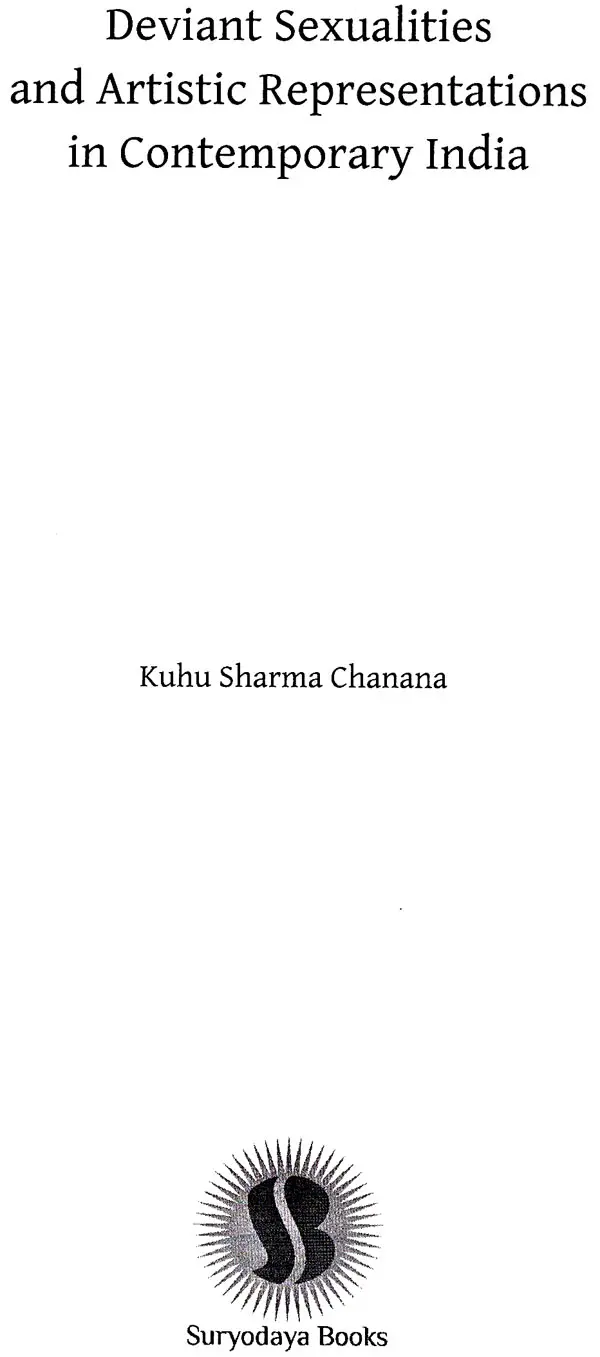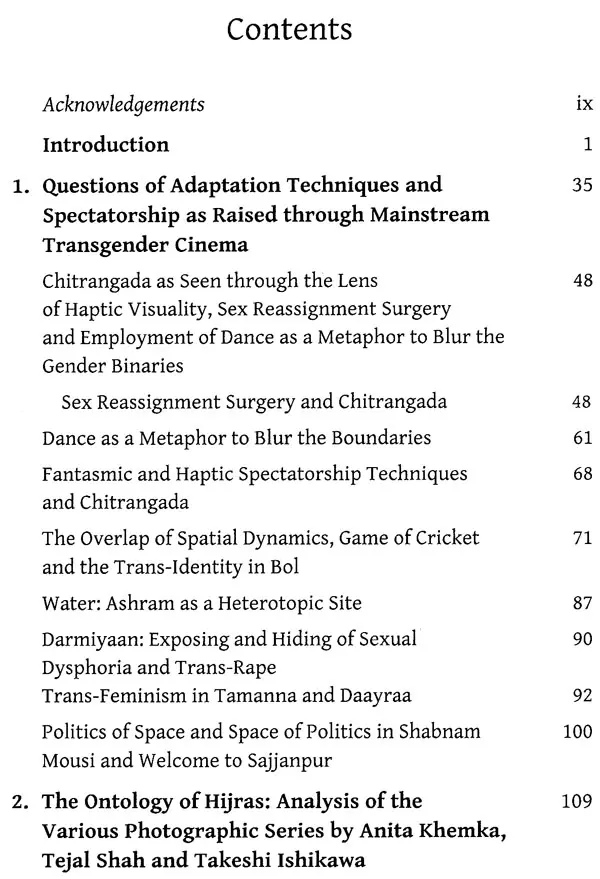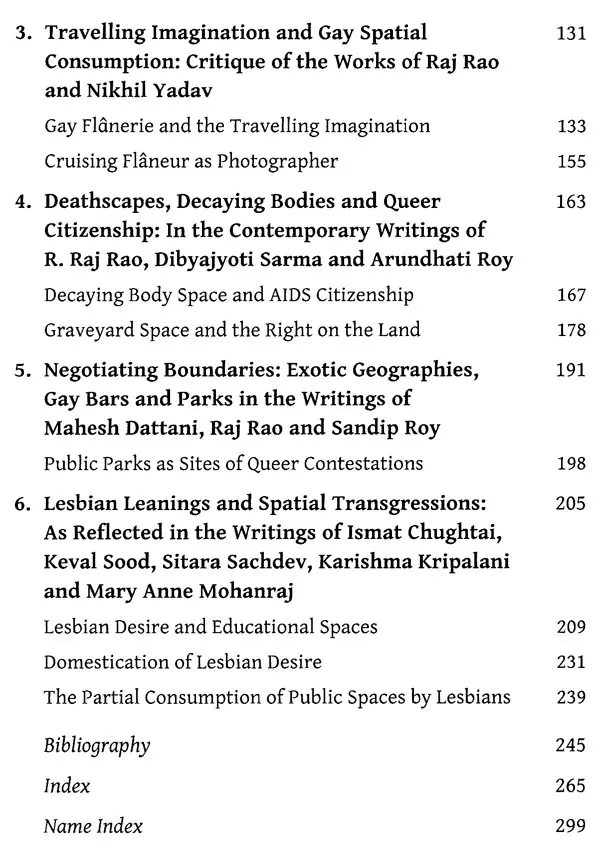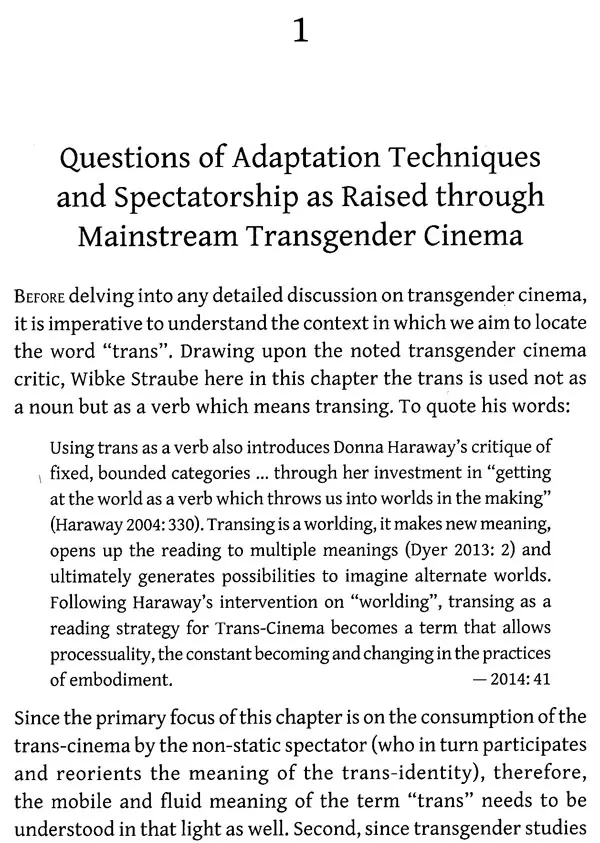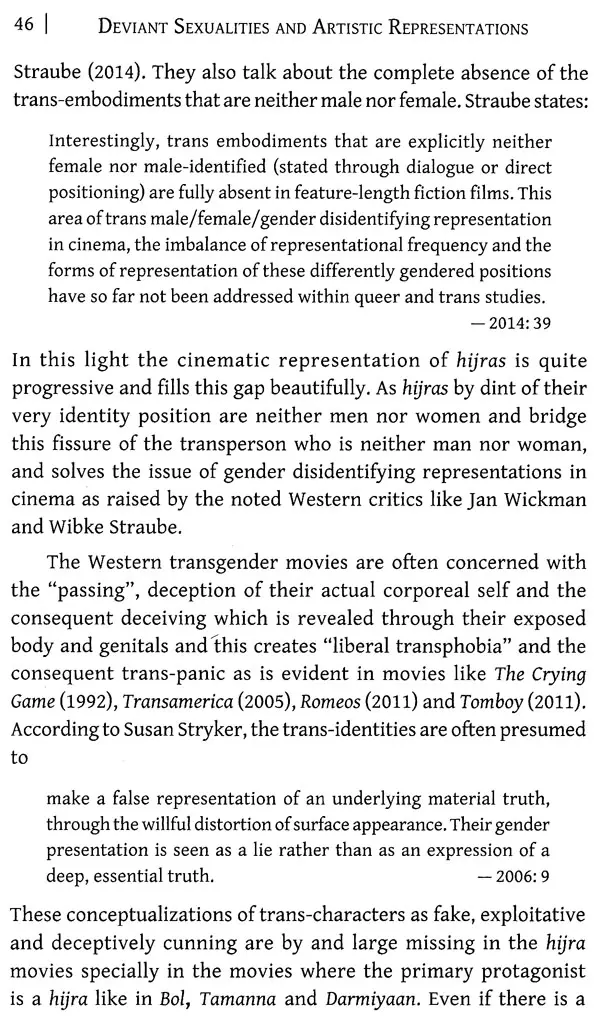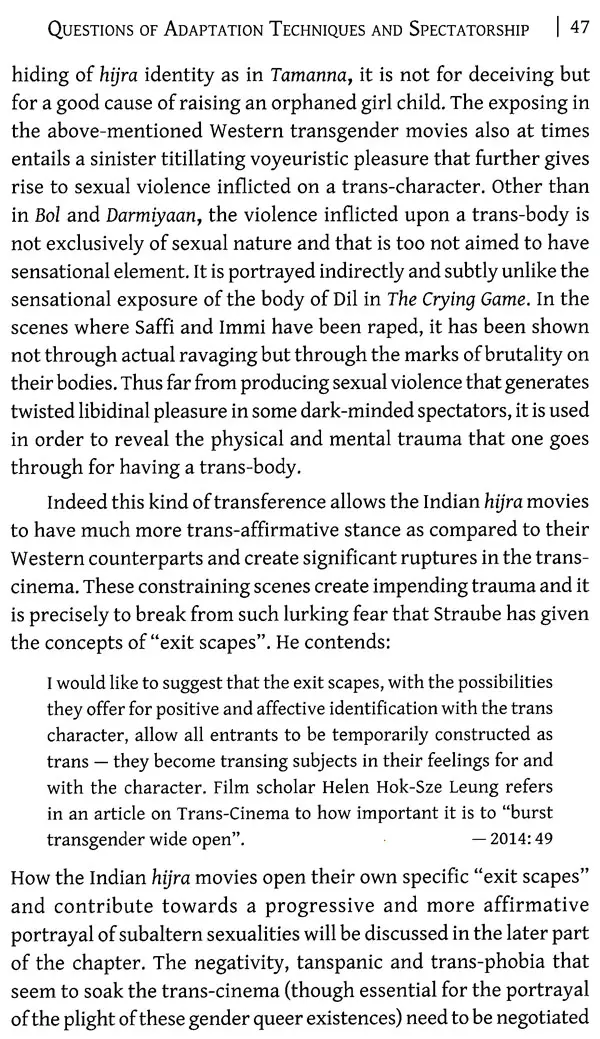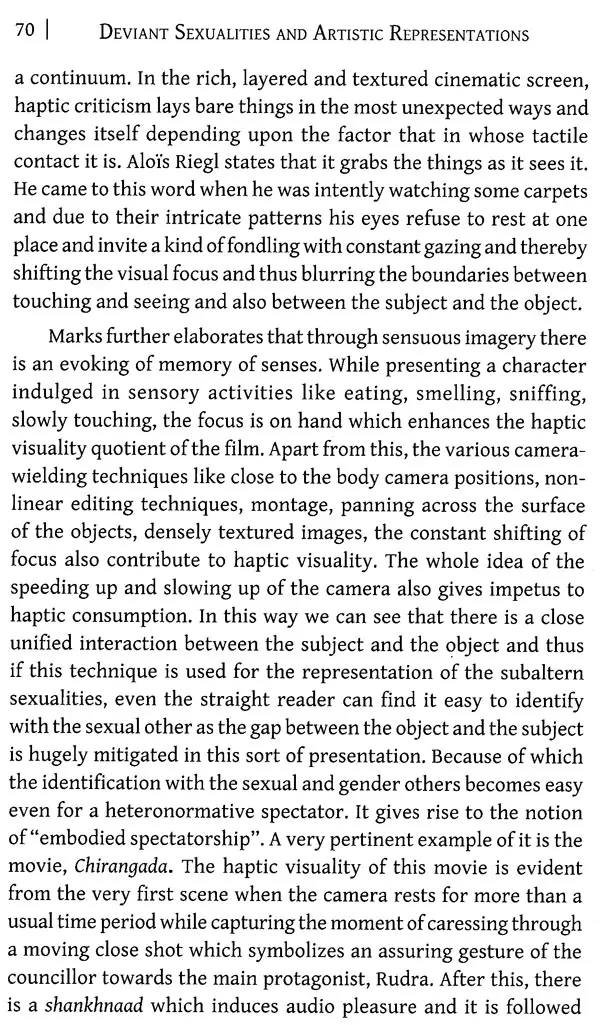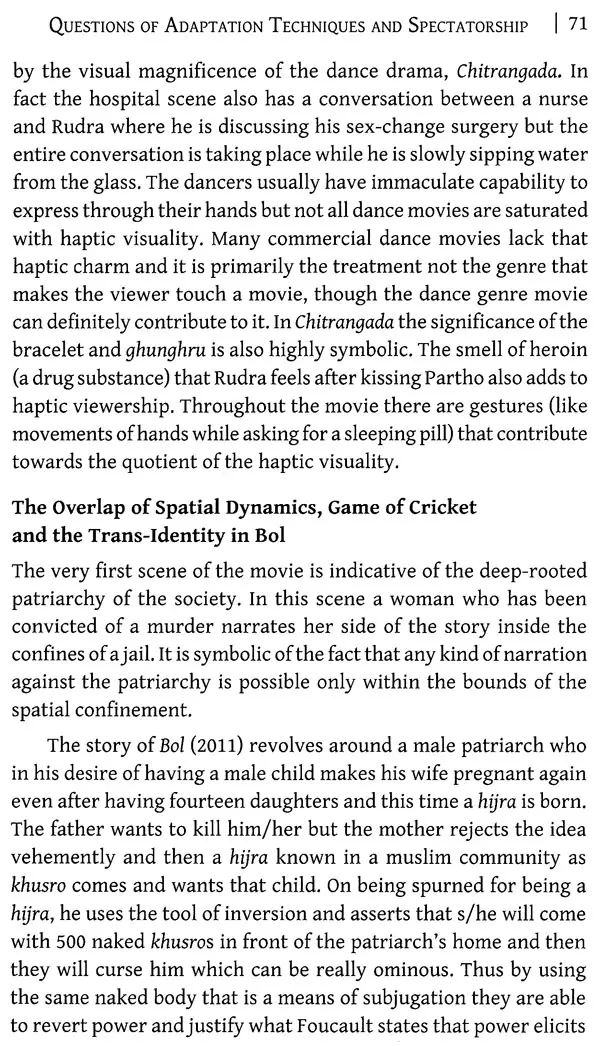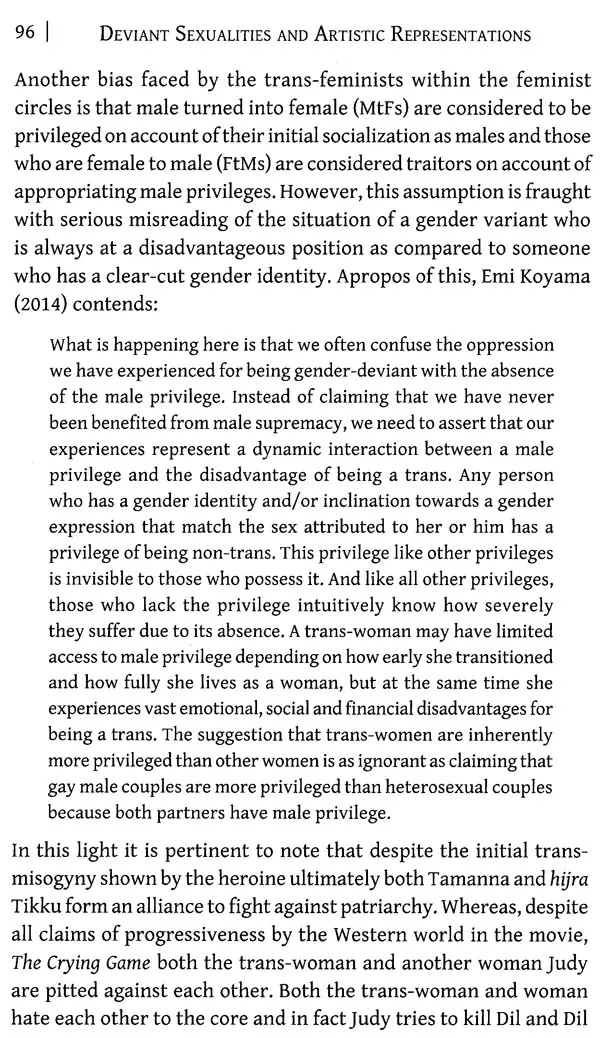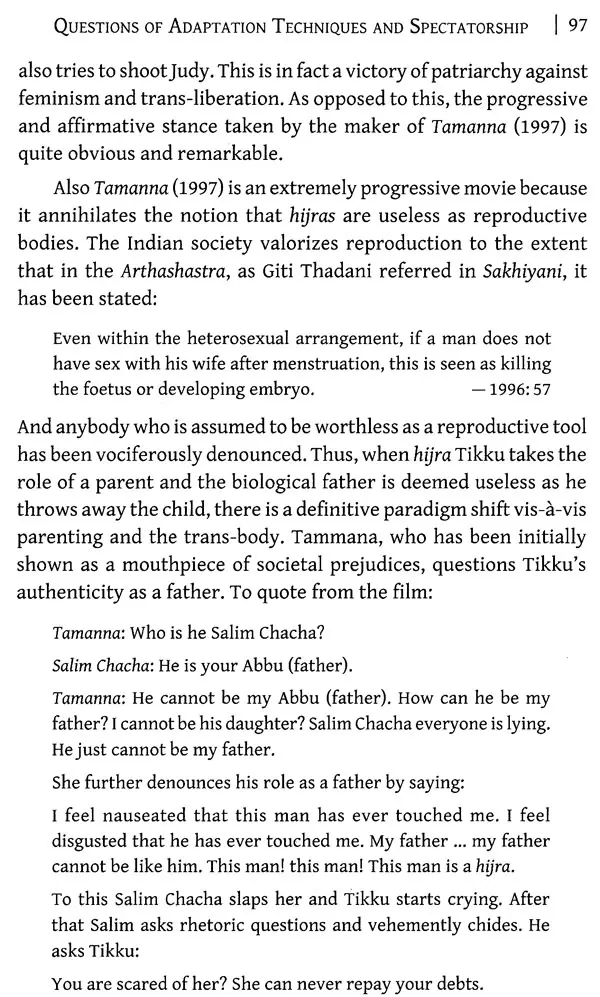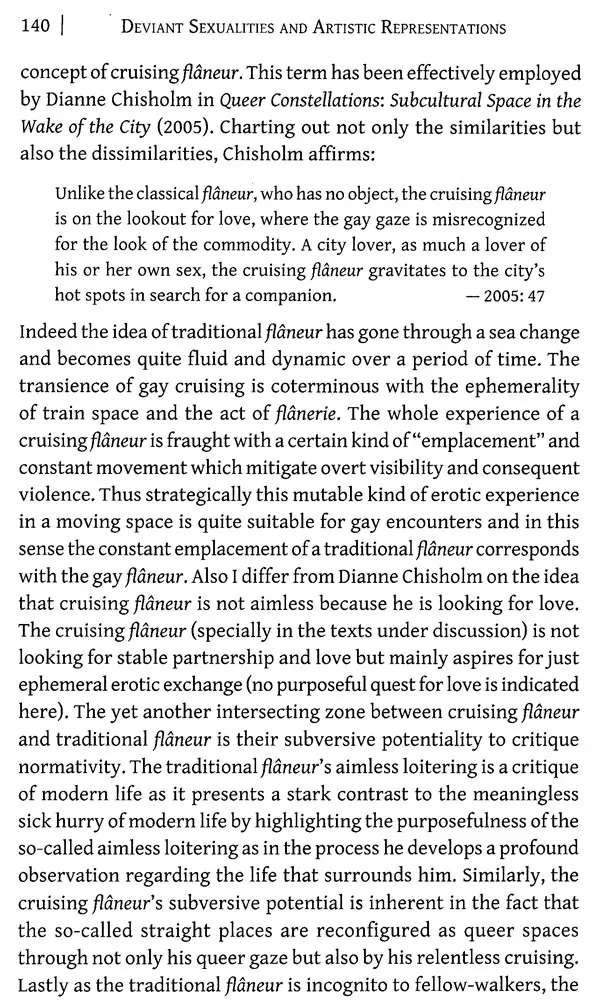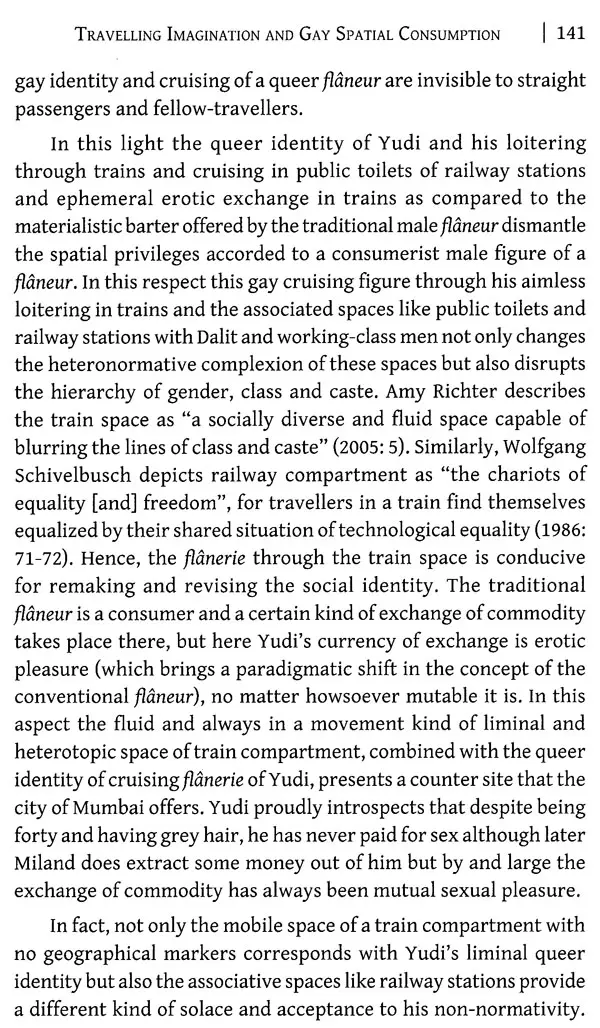
Deviant Sexualitites And Artistic Representations in Contemporary India
Book Specification
| Item Code: | UBD727 |
| Author: | Kuhu Sharma Chanana |
| Publisher: | Suryodaya Books, Delhi |
| Language: | English |
| Edition: | 2022 |
| ISBN: | 9789392443008 |
| Pages: | 307 |
| Cover: | HARDCOVER |
| Other Details | 9.00 X 6.00 inch |
| Weight | 580 gm |
Book Description
Representation of non-normative sexualities is still a tantalizing dream in India, even within the oblique and supposedly more liberal platforms like art and literature. Catering to this need, this study focuses on the exploration of the deviant sexualities in cinema, photography and literature, specially in the Indian context. Unfortunately, even within the queer artistic explorations, hijras have not been much represented and therefore the first part of the book aims to excavate the multiplicity of the transgender lives by analysing various art forms, having transgender cinema and hijra photographic series as the major thrust areas. These tales of plain subjugation hide convoluted issues like necropolitics, overlap among sports, gender identity and nationalism, crazy-queen syndrome, pansexuality, transfeminism and transmisogyny. The second part of this book deals with the contemporary gay and lesbian literature and how a specific kind of spatial appropriation is visible there. Through these artistic works, there is an attempt to excavate the specific Indian queer spatial experiences which are quite different from the visibility-centric coming out narratives of the West. As opposed to perceiving invisibility only as a monolithic technique of erasure, these works demonstrate that secrecy and camouflage are also strategies to combat the insidious effects of homophobia. And since Indian spatial configuration produces many homosocial spaces, the unique co- existence of homo and hetero desires is a specific feature of Indian ethos. Thus, the mutually symbiotic relationship between art and emancipatory politics is quite evident from the detailed discussion on various art forms that depict queer lives. The key issues that have been explored through this book are necropolitics, issues surrounding sex-reassignment surgery (SRS), transfeminism, exploration of queer geographies including death scapes, AIDS citizenship and queer flânerie. It indubitably legitimizes somewhat the role of art in queer politics at a fundamental level.
Kuhu Sharma Chanana has written three. books, D.H. Lawrence and the Poetic Novel, An Evening Rainbow: Queer Writings in Regional Literature and LGBTQ Identities in Select Modern Indian Literature. She has also written a number of articles on various facets of feminism and alternative sexuality in Indian Literature, Critical Endeavour, Points of View, Occasional Paper Series and JSL. She has also edited a special number on same-sex love fiction for Indian Literature. She is also a recipient of Charles Wallace Trust Fellowship (Edinburgh University), UGC Research Award Fellowship and Teen Murti Fellowship. Her book LGBTQ Identities in Modern Indian Literature has found place in many important libraries in India and abroad. She is working as a Professor of English Literature at S.S.N. College, University of Delhi.
THE writing of this book has been sustained by a network of friends, scholars and institutional support. Central to this work was the support granted to me by the two fellowships, UGC Research Award (2016-18) and Nehru Memorial Museum and Library Fellowship (2018-20). This work is a modified version of the research carried out by me while I was on these two fellowships. I owe a special debt to the Department of English, University of Delhi, which was my research centre for carrying out UGC research fellowship. I profusely thank Prof. Christel Devadawson, Dr. Prasanta Chakravarty, Dr. Pankaj Mittal, Dr. Mayank Kumar (IGNOU), Dr. Ravi Mishra and Dr. Narendra Shukla for their incessant support and guidance. My special thanks are due to Dr. Inder Mohan Kapahy for always believing in me and motivating me. I am also deeply grateful to my childhood friend, Kapil Dev Anand, for keeping me aloft in my dark times and for always being there through thick and thin. Last but not the least I also thank my father, Prof. K.K. Sharma for instilling deep love for literature in me.
**Contents and Sample Pages**
